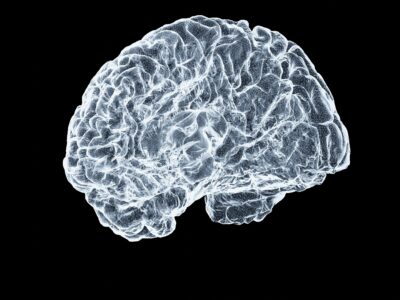If you’re in early recovery and noticing trouble concentrating, losing your train of thought, or feeling mentally “sluggish,” you’re not alone. Many people experience brain fog—a mix of poor focus, slow processing, memory lapses, and mental fatigue—after quitting alcohol or drugs. In Biloxi and across the Gulf Coast, clients often tell us the fog can be more frustrating than physical cravings because it interferes with work, parenting, and day-to-day confidence.
The good news: brain fog is common, usually temporary, and highly manageable with the right plan. By understanding why it happens and how to respond, you can protect your progress and reclaim mental clarity.
What Is “Brain Fog”?
“Brain fog” isn’t a diagnosis—it’s a cluster of symptoms that can include:
- Difficulty focusing or sustaining attention
- Short-term memory issues (misplacing items, forgetting tasks)
- Slower processing speed and word-finding problems
- Mental fatigue, irritability, and low motivation
In recovery, brain fog often appears alongside post-acute withdrawal syndrome (PAWS) symptoms like sleep disruption, mood swings, and anxiety. These changes reflect the brain’s healing process as it recalibrates neurotransmitters and stress pathways after substance use.
Why Brain Fog Happens in Recovery
Brain fog can be driven by several overlapping factors:
1) Neurochemical reset
Substance use can over-stimulate the brain’s reward system. Early sobriety removes those artificial spikes, and the brain needs time—weeks to months—to rebalance dopamine, GABA, and glutamate activity. During this reset, thinking can feel dulled.
2) Sleep debt and circadian disruption
Insomnia, fragmented sleep, or irregular schedules are common in early recovery and directly impair attention, memory consolidation, and emotional regulation.
3) Nutritional depletion and dehydration
Deficits in B-vitamins, omega-3s, magnesium, and overall hydration can sap mental energy and slow processing speed.
4) Stress load and emotional processing
As numbing stops, unresolved stress and trauma surface. Heightened cortisol and persistent worry drain cognitive bandwidth, worsening brain fog.
5) Co-occurring conditions
Depression, anxiety, ADHD, or medical issues (thyroid imbalance, anemia, sleep apnea) can amplify fog and deserve evaluation.
How Long Does Brain Fog Last?
Timelines vary, but many clients report the worst mental haze in the first 2–8 weeks after stopping substances, with steady improvements over 3–6 months. Recovery is not linear—good days and foggy days alternate. If fog is severe, worsening, or persists beyond a few months, it’s worth a closer look with your care team.
Clearing the Fog: Practical Steps That Work
These evidence-informed strategies help restore cognitive clarity while reinforcing sobriety:
Build a recovery-friendly sleep routine
- Keep consistent bed/wake times (even on weekends).
- Limit late caffeine and heavy evening meals.
- Use a wind-down cue (dimming lights, light reading, gentle stretches).
- Reserve the bed for sleep only; avoid doom-scrolling.
Stabilize your fuel
- Aim for balanced meals with protein, complex carbs, and healthy fats.
- Replete nutrients commonly depleted by substance use (discuss B-complex, omega-3s, and magnesium with your provider).
- Hydrate on a schedule—brain tissue is ~75% water and dehydration worsens brain fog.
Move your body daily
- 20–30 minutes of moderate activity (brisk walking, cycling, yoga) enhances blood flow, supports neuroplasticity, and lifts mood.
- Short “movement snacks” (5–10 minutes) between tasks can reset attention.
Train your attention
- Try brief, daily mindfulness or breathwork (2–10 minutes) to reduce cognitive noise.
- Use single-tasking: silence notifications, set a 25-minute timer (Pomodoro), and batch distractions.
- Light cognitive workouts (word games, memory apps, puzzles) can sharpen focus without overwhelm.
Organize around your energy
- Schedule demanding tasks when your mind is clearest (often mornings).
- Break work into small steps with visible checklists and calendar reminders.
- Externalize memory: sticky notes, phone alarms, or a simple task manager.
Address the root causes
- If trauma is part of your story, healing the “why” behind substance use reduces overall stress load and mental fog. MSDATC offers a compassionate, safety-first approach: explore our trauma-informed care to learn how we integrate grounding skills, pacing, and body-based techniques.
Engage your support system
- Fog lifts faster when you’re not carrying recovery alone. Invite loved ones into the process and consider structured sessions. See our guide to family involvement in addiction recovery for ways to rebuild trust and set supportive routines at home.
When to Seek Extra Help
Reach out to a clinician if you notice any of the following:
- Brain fog that significantly impairs work, driving, or safety
- Persistent headaches, visual changes, or neurological symptoms
- Ongoing low mood, panic, or compulsive behaviors replacing substance use
- Snoring or choking at night (possible sleep-disordered breathing)
- Medication side effects that may affect cognition
A tailored assessment can rule out medical contributors and fine-tune your plan (sleep support, nutrition, therapy modalities like CBT/DBT, medication review).
How MSDATC in Biloxi Helps Clear Brain Fog
At Mississippi Drug and Alcohol Treatment Center, we personalize care to your unique recovery profile:
- Integrated medical & behavioral care: We coordinate sleep hygiene, nutrition support, and medication evaluations alongside therapy.
- Skills-based therapies: Cognitive-behavioral strategies, mindfulness, and grounding skills target attention, memory, and stress regulation.
- Relapse-resistant routines: We help you design a realistic day structure, accountability check-ins, and cue-based prompts that guard your focus.
- Community support: Group settings normalize the experience of brain fog, reduce shame, and provide practical tips that work in real life.
Your Next Right Step
Brain fog doesn’t have to slow your progress. With a thoughtful plan, clear routines, and support that addresses root causes—not just symptoms—your mind can feel sharp again. If mental haze is making recovery harder, local help is close by.
Ready for clearer thinking and steadier days in Biloxi?
Connect with Mississippi Drug and Alcohol Treatment Center


 Sober Parenting in Mississippi: Rebuilding Family Bonds
Sober Parenting in Mississippi: Rebuilding Family Bonds